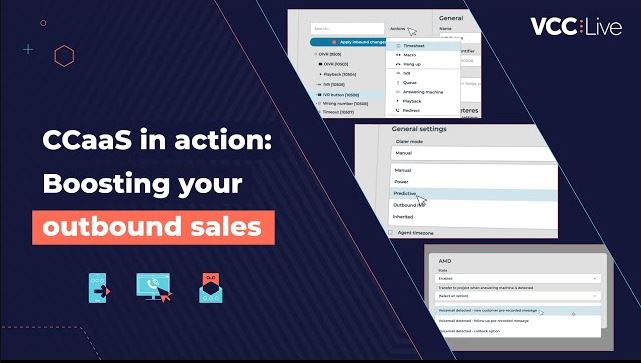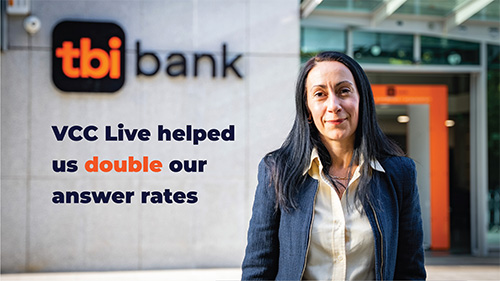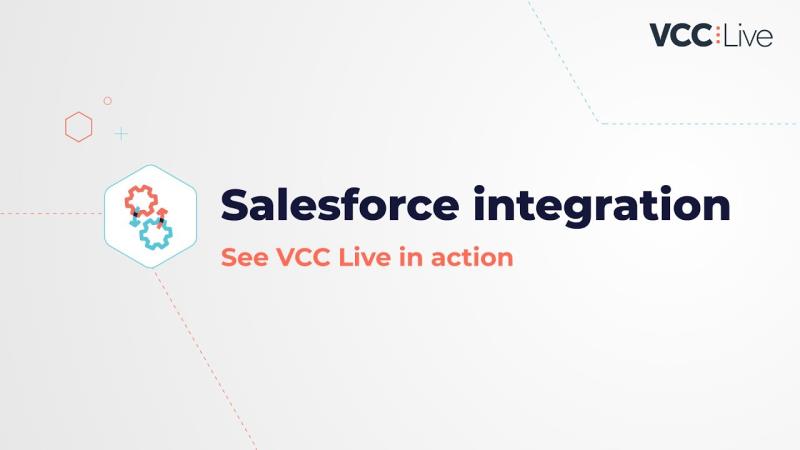Customer service has rapidly changed over the past decade. The way that businesses interact with their customers has changed in ways unimaginable. Companies have previously made seemingly long-term investments in on-premise-based contact centers. However, in today’s communication infrastructure, businesses inevitably have to think about cloud-based technologies. A possible solution to this problem is maintaining a hybrid contact center. A hybrid approach integrates on-premise systems with only certain functionalities migrated to the cloud.
The benefits of cloud technology
The solutions that cloud technology has to offer can help with creating more effective client-side communication. In today’s infrastructure, customers expect to be able to connect with businesses anytime anywhere, on multiple channels, and in a manner personalized to them. This means that companies need to provide constant availability and up to date customer data across all their platforms. Additionally, clients need to have the option of switching between channels seamlessly. Whether it’s SMS to phone or phone to chat, they need to be able to pick up communications where they left off, as customers are used to being provided with accurate information whenever needed. The solutions that cloud technology has to offer can help with creating more effective client-side communication. Real-time reporting tools, omnichannel communications, and effective agent management mean that businesses are able to provide up to date and unified customer experience.
Factors hindering businesses from adopting cloud technology
While there are clear benefits of moving your operations to the cloud, it does not always come easy. The most common concerns hindering businesses from adopting cloud technology include data migration and security as well as performance concerns.
While it is the cloud provider’s responsibility to guarantee data security infrastructure, this does not always mean full security. Sometimes, data security issues can arise due to poorly managed third party services. Additionally, another related concern when adopting cloud technology is the issue of performance. Companies need to have reliable access to data from anywhere, including from places without a reliable internet connection.
A hybrid approach
A potential solution to the above lies in the adaptation of a hybrid contact center. By integrating both on-premise and cloud-based contact center technologies, both your integration and performance concerns can be addressed, along with the ability to provide an up-to-date customer experience living up to the highest standards. Data can remain stored on-premise, while you can address your connection concerns by maintaining the most fundamental elements of your operation in-house.
Hybrid contact center strategies
There are several options when it comes to adopting a hybrid contact center. One option often leveraged by companies is to maintain their existing on-premise voice channels, while adding multi-channel cloud functionalities, such as SMS and Video. This means that companies can take calls on-premise while handling other platforms via the cloud. Alternatively, companies can also decide to split up their workforce and use one group of agents on-premise, while setting up a cloud environment for the other.
Whether deciding to move only certain functionalities or the entire operation onto the cloud, a well-planned migration should not take too much time and resources. In case companies migrate only small databases, a simple internet connection can be sufficient in migrating an app to the cloud. In the case of larger databases, companies can consider moving their servers to their respective cloud providers.
The benefits of a hybrid contact center
Hybrid contact centers offer significant advantages. The cost of gradually scaling the number of channels used with a cloud provider is usually low, as cloud providers often charge based on consumption. This gives companies time and space to decide what channels are necessary for their operations and perform a detailed cost-analysis, up or downscaling if necessary.
Additionally, dynamic scaling also becomes an option when using hybrid contact centers. For one time campaigns and seasonal projects, companies can scale their operations much more effectively. Companies can scale their cloud-based workforce, based on their needs, as cloud platforms can be activated when needed without having to constantly maintain them.
Maintaining a hybrid contact center can be an answer to many companies struggling to reconcile their previously used on-premise systems, with up-to-date, cloud-based customer services. Factors hindering companies from adopting a fully cloud-based customer service solution include data migration and security as well as performance concerns. However, a hybrid contact center can be a solution to this, by enabling you to maintain the most crucial elements of your customer service on-premise, while allowing you to engage in cloud communications, such as multi and omnichannel solutions. Setting up a hybrid contact center should be a relatively simple task, with added benefits, such as cost-effective, gradual, and dynamic scaling.















